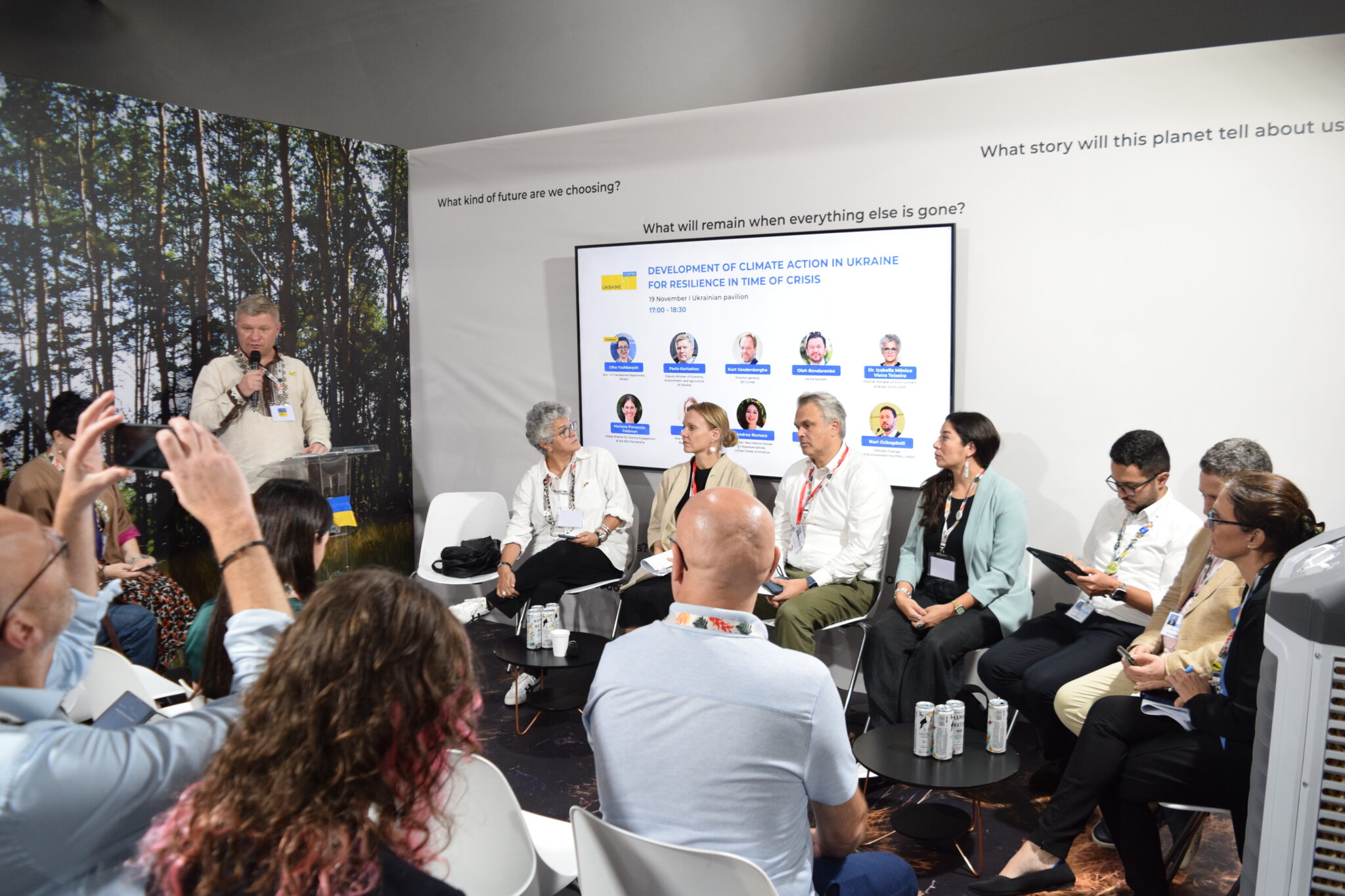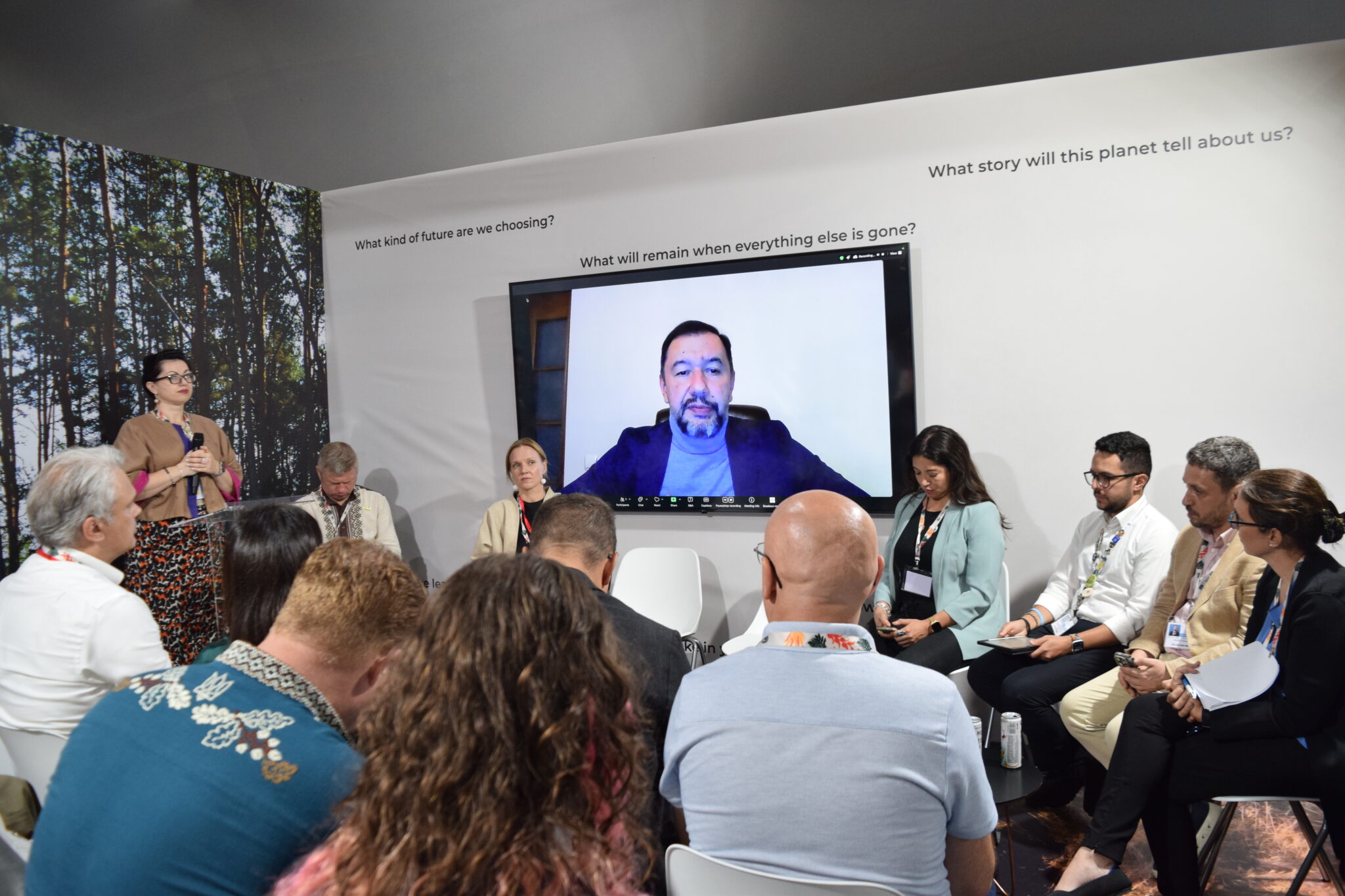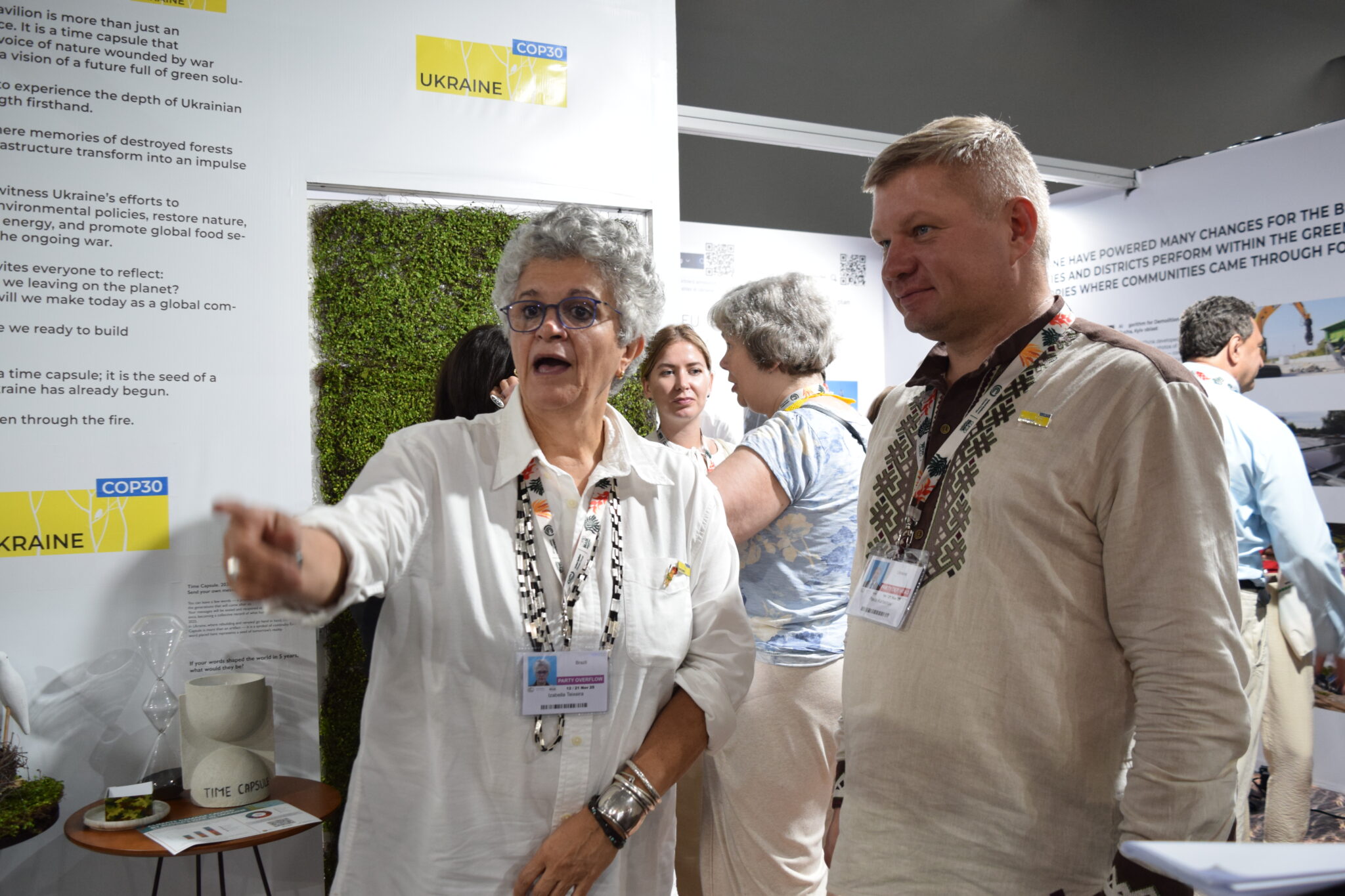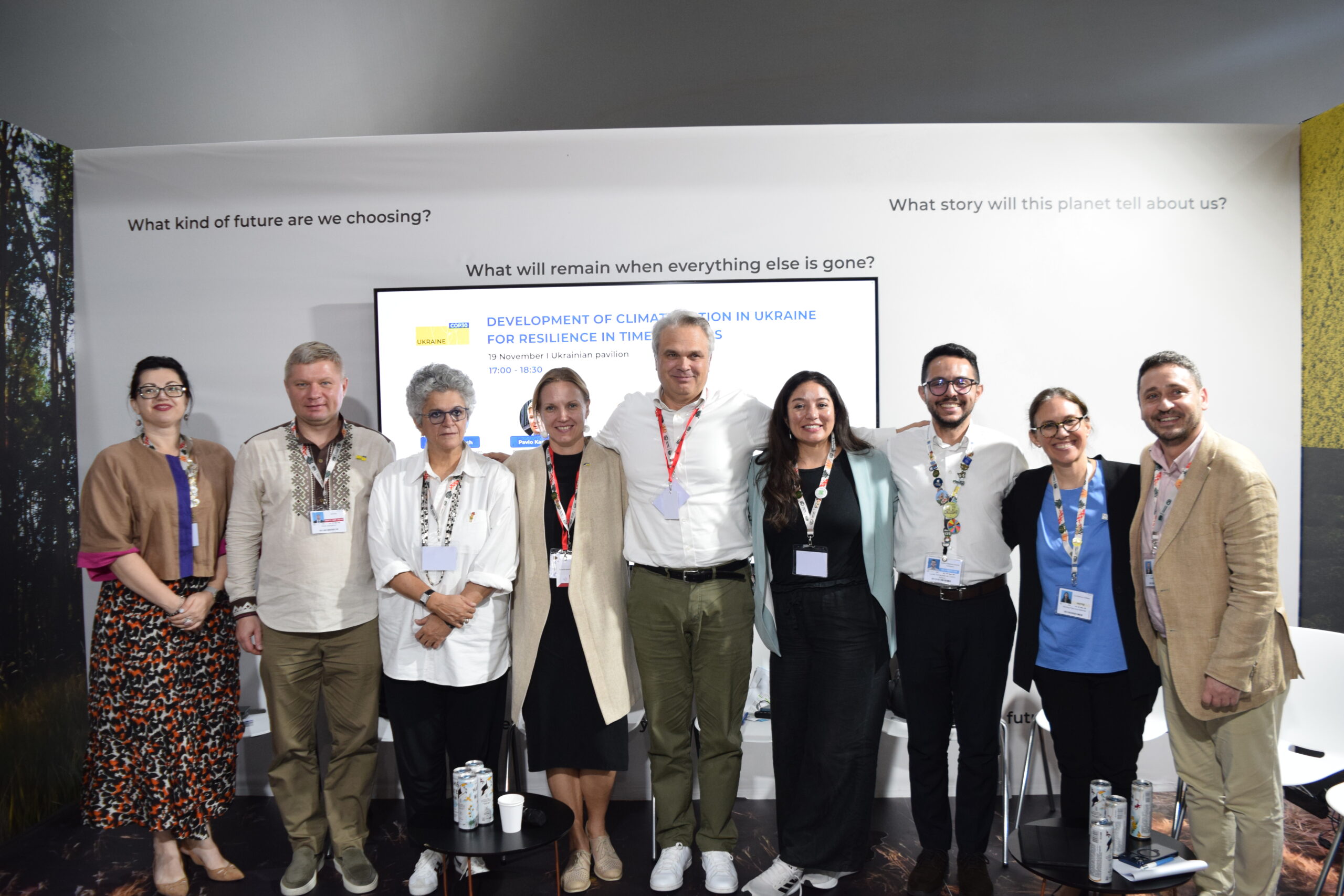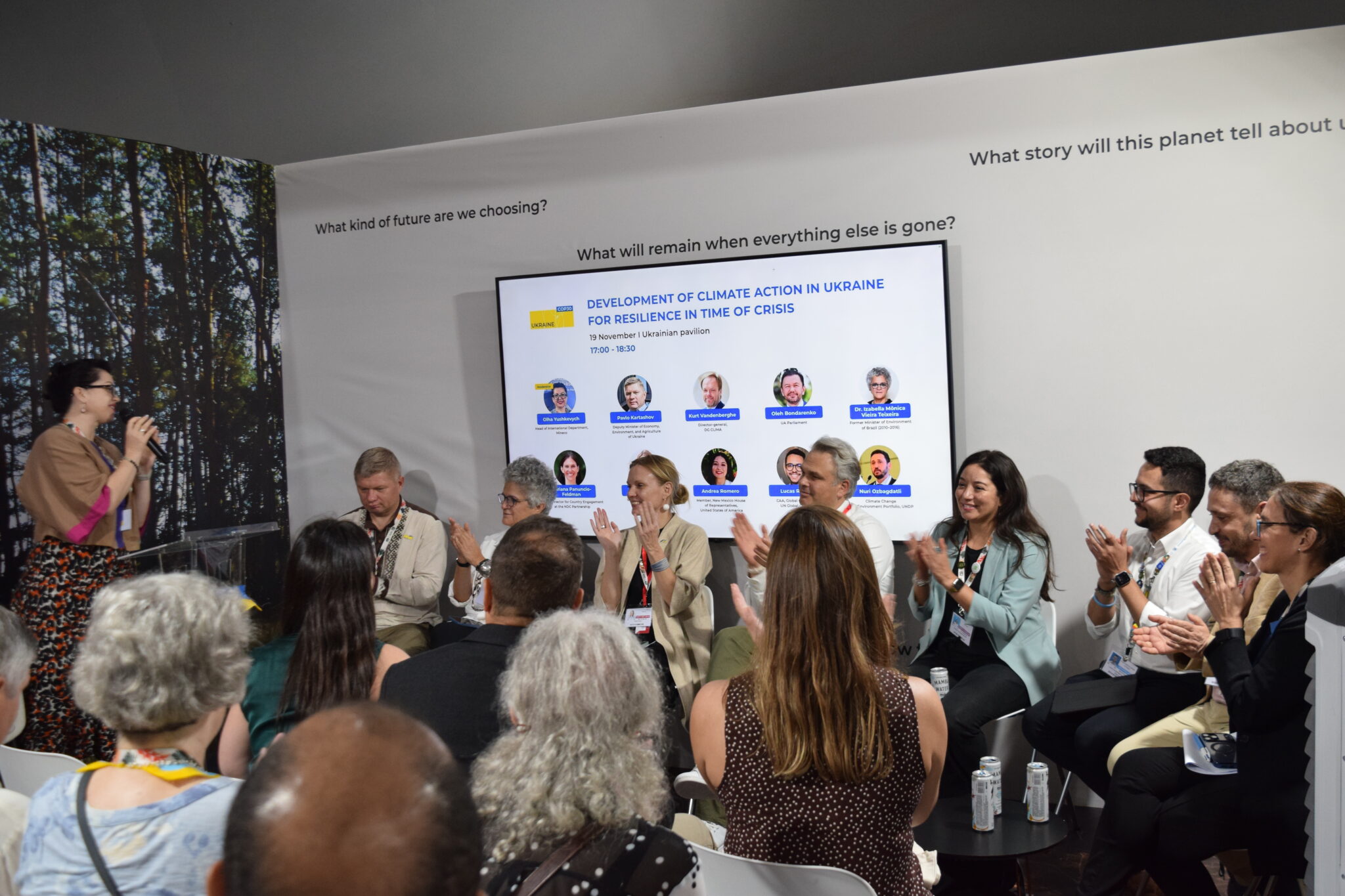“Developing climate action in Ukraine for resilience in times of crisis” — an event with this title took place in the Ukrainian pavilion at COP30. It was attended by high-ranking officials from Ukraine, Europe, the United States, Brazil, and representatives of international organisations.
Participants in the discussion spoke about the evolution of Ukraine’s climate policy in the context of full-scale war, the need for international support, and joint global efforts to combat climate change.
Deputy Minister of Economy, Environment and Agriculture of Ukraine Pavlo Kartashov recalled just some of the climate-related consequences of Russia’s full-scale aggression: more than 1.7 million hectares of Ukrainian forests destroyed or damaged and about 230 million tonnes of additional CO2 emissions.
This means, Pavlo Kartashov noted, that Russian aggression is moving the world further away from its common goal: to limit global warming to 1.5 degrees Celsius.
Despite the war, Ukraine is sticking to its climate commitments and modernising its economy.
“We came to COP with important results. Ukraine has adopted its second Nationally Determined Contribution and set an ambitious goal to reduce emissions by more than 65% by 2035. Despite the war, we have submitted a biennial transparency report under the Paris Agreement. At this COP, we are also presenting our Long-Term Low Carbon Development Strategy. This document will be officially adopted in the near future and will serve as a roadmap for green transition and recovery in Ukraine,” said Pavlo Kartashov.
Ukraine’s international partners at the event offered practical tools for green financing, carbon pricing systems and renewable energy development that can be applied even during the war.
Tony Agota, the European Union’s Special Envoy for Climate and Environment, noted at the meeting that the emissions trading system is the ‘backbone of the EU’s climate policy.’ After all, it is the basis for decarbonisation and innovation in European industry. The diplomat noted that pursuing a green transition makes sense not only for the planet, but also from an economic and geopolitical point of view.
Tony Agota also noted Ukraine’s progress in European integration:
“Despite Ukraine facing a full-scale war, you are making good progress in the field of environment and climate — Chapter 27. You have adopted the first framework climate law with a commitment to achieve climate neutrality by 2050 and presented an action plan to create an emissions trading system. These are extremely important steps on your path to EU membership, and achieving them in the current circumstances has been extremely difficult.”
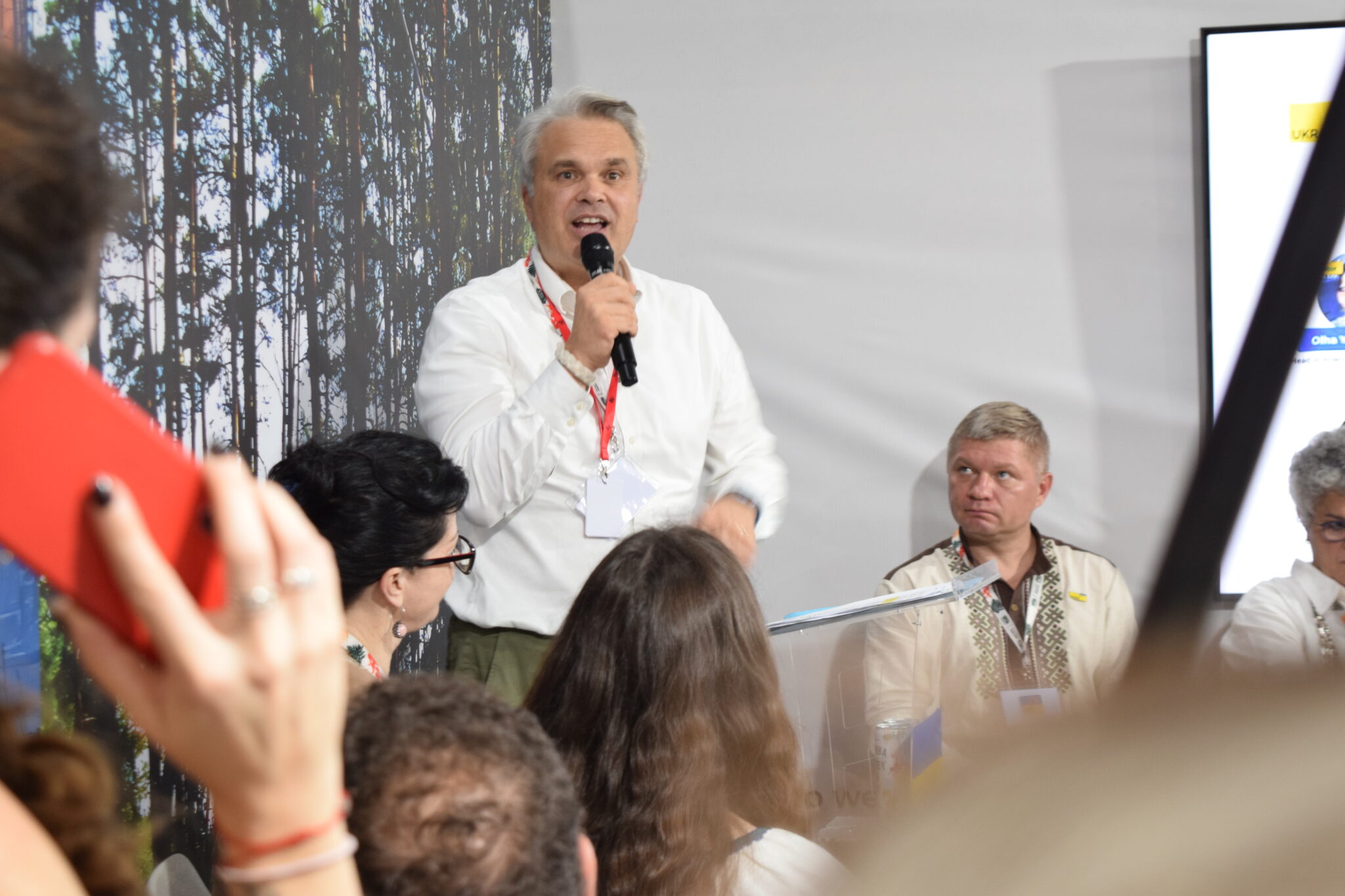
Ukraine can count on comprehensive support from Europe, particularly Estonia, noted Deputy Minister for Climate Kristi Klaas. She also highlighted the progress made in Ukraine’s climate policy and welcomed the efforts towards green recovery.
“We need to ensure that the recovery is truly guided by the principle of “build back better” — to rebuild better than it was before. This means rebuilding the country in a way that lays the foundations for a clean economy. Instead of rebuilding outdated and high-carbon facilities, Ukraine has the chance to leap straight into a modern low-carbon industry — investing in green steel, hydrogen and sustainable building materials. If the reconstruction is truly green, it will not only reduce emissions and restore ecosystems, but also secure Ukraine’s place in the European economy.
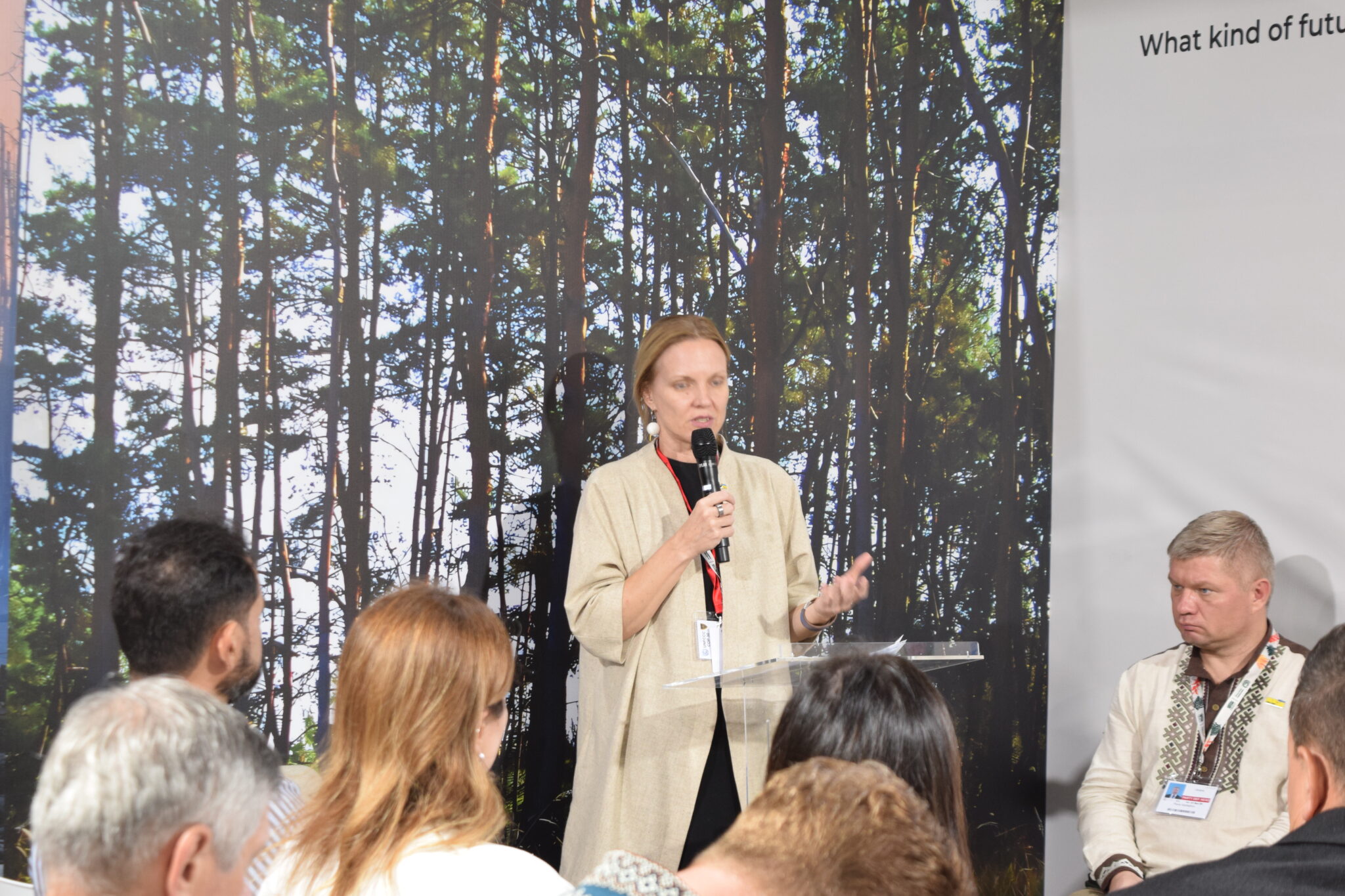
The discussion also touched upon broader climate issues and examples of intergovernmental cooperation to achieve global goals. Successful models of cooperation and examples of lessons learned were presented to inspire and guide other countries experiencing crises.
“Climate and nature have become the new front line in global politics. Competition for natural resources and critical minerals threatens to trigger a new wave of extractivism — a new form of colonialism. Today, nature politics and climate policy are at the centre of geopolitical confrontations, and wars are part of this reality. That is why the green reconstruction of Ukraine matters far beyond your borders. Restoring nature in a country ravaged by war is also a call to restore global cooperation based on peace, not exploitation,” said Isabella Teixeira, co-chair of the UN International Resource Panel (IRP/UNEP) and former Brazilian Minister of the Environment, at the meeting.
This event in the Ukrainian pavilion was yet another opportunity to tell the world about Ukraine and its achievements in climate policy, which it is demonstrating despite the full-scale war.
On the other hand, this discussion showed that the world sees and recognises Ukraine’s efforts and progress. And the participation of such high-ranking officials demonstrated that Ukraine is not alone on this path.
